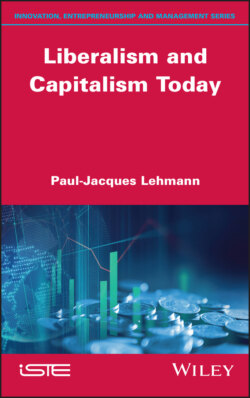Читать книгу Liberalism and Capitalism Today - Paul-Jacques Lehmann - Страница 22
1.3.4. … transforms into political power
ОглавлениеThese bourgeois, first merchants, then industrialists, were at the same time transformed into citizens taking over the administration of their common affairs. Indeed, as soon as they became rich, the inhabitants of the cities and the companies established there became more powerful politically than the local lords. They seized political power at the expense of the military elite in order to defend their cities. Weber (2019) argued that “the urban middle class has usurped a breach in seigniorial law and the economy was thus a continuation of the war by other means […] Throughout the Middle Ages, the city was the main support not only of the monetary economy, but also of the administration exercised by virtue of official duty, the first step towards the development of the rational state where the administration lost all personal dimension”.
Similarly, in The Old Regime and the Revolution, de Tocqueville (1856) wrote:
In the eighteenth century, all parochial business was transacted by who were not seigniorial, and who, instead of being chosen by the seigniors, were either appointed by the intendant of the province, or elected by the peasantry. It devolved upon these officers to distribute the taxes, to repair the churches, build schools, to convene and preside over parish meetings; to administer and superintend the expenditure of the funds of the commune; to institute or answer, on behalf of the community, all necessary legal proceedings. The seignior had lost not only the management, but even the supervision of these petty local matters […] The seignior was in fact nothing more than a simple individual, isolated from his fellows by the enjoyment of peculiar immunities and privileges; his rank was different – his power no greater than theirs […] The French nobility persists in remaining apart from the other classes, and gentlemen end up allowing themselves to be exempted from most of the public burdens that weigh upon them. They figure that they will preserve their greatness by evading these charges, and it seems at first to be so. But soon an internal disease seems to have attached itself to their condition, which gradually reduces without anyone touching them, and they become poorer as their immunities increase. The bourgeoisie, with whom they had been so afraid of being confused, becomes richer on the contrary and becomes enlightened beside them, without them and against them: they had not wanted to have the bourgeoisie as partners nor as fellow citizens; they will find in them rivals, soon enemies, and finally masters.
However, this seizure of political power by the bourgeoisie would lead to economic disadvantages with the passing of laws that questioned the form of this nascent capitalism: encouragement of the formation of monopolies, sources of price increases and protectionism, an increase in public spending and therefore in taxes, and privileges granted to new beneficiaries. Moreover, quite rapidly, cities would lose their influence, both because the increase in the size of companies would force them to settle outside the cities, as the lords saw their incomes increase when they, in turn, became entrepreneurs, and because the cities of southern Europe were facing devastating competition.
We will have the opportunity to explain that, for Weber, this profound transformation went hand in hand with the appearance of Protestantism and the precepts that this religion inculcated in its followers.
